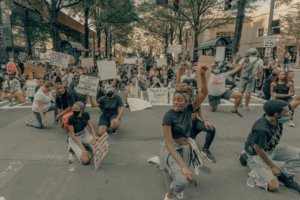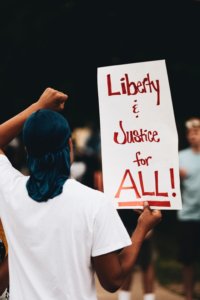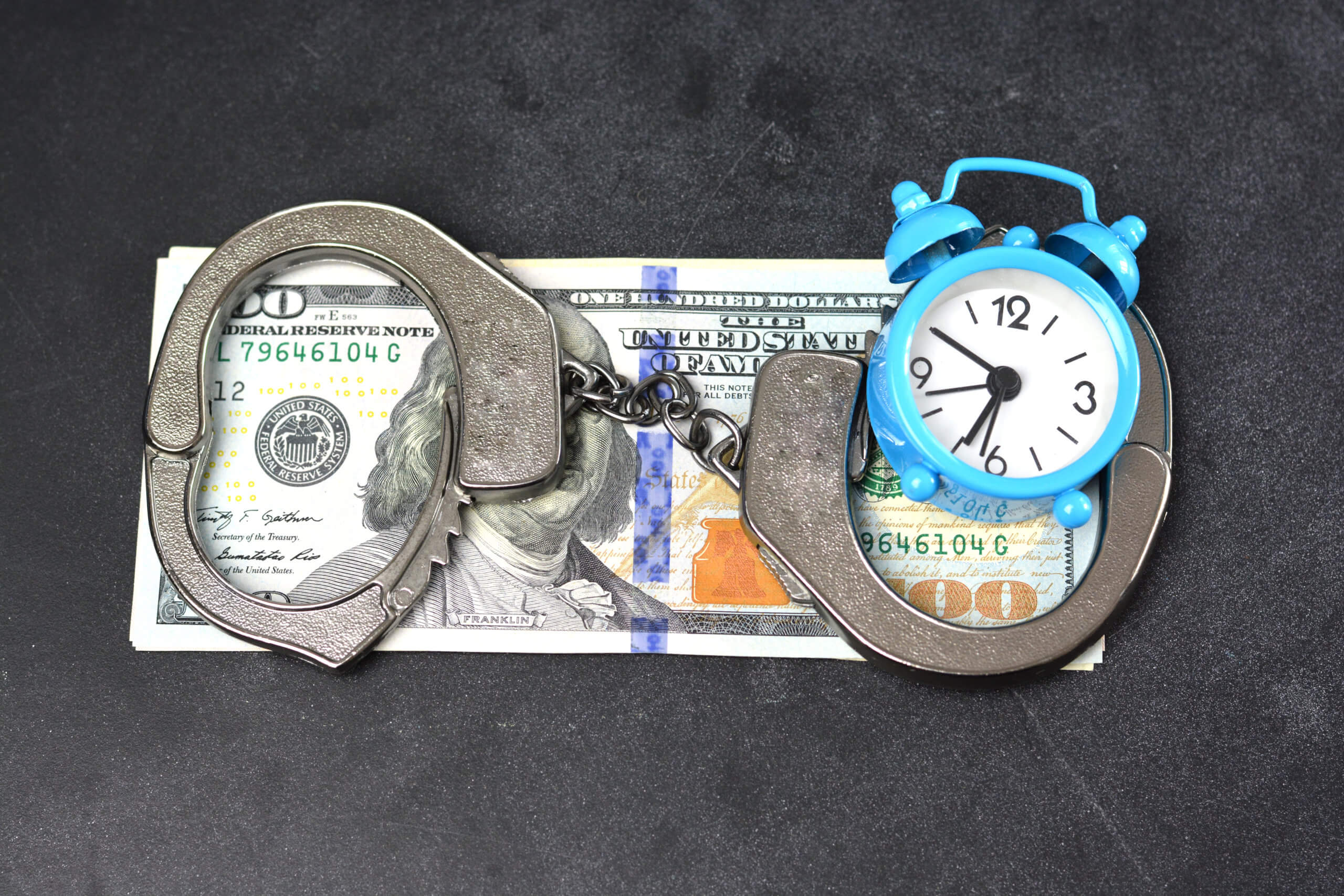
As we enter 2021, we’re able to look back at the many calls for social justice reform that occupied most of last year, made headlines, and national news all amid a global pandemic. Protests have led to increased awareness of flaws within our system. One reform particularly that has been seeing significant attention is the cash bail requirement built into our legal system.
According to the ACLU, in 2015 alone, over 700,000 people were locked up locally without conviction. It wasn’t until the pandemic that advocates called for a change that select states began to look into prisons’ overcrowding, which caused spiking of COVID cases prompting them to begin releasing nonviolent, unconvicted pretrial detainees. This move only enhanced the spotlight on the importance of removing bail, and more people began to see that having money doesn’t make you innocent, and being poor should not declare you guilty.
By April 2020, many states began to respond to the pandemic by freeing pretrial detainees or significantly reducing the bail amounts, such as Colorada, Massachusetts, and Michigan. California lessened their prison populations, consisting of many pretrial prisoners, by 45% while Orange County, Florida released 300 pretrial detainees.
It is hard for many to imagine a justice system without bail as a tool to prevent criminals from walking the street. We generally trust our system and believe that if a person is in jail, they deserve it. While that may be true in many cases, the legal system remains flawed with cash bail.
Bail does not ensure public safety and often promotes the opposite. Like most policies, they start simple enough. In the 1700s, bail settled disputes. Eventually, The Judiciary Act of 1789 set bail as the standard for all crimes except for death penalties. It became part of the 8th amendment in the Bill of Rights in 1791, removing cruel and unusual punishments and excessive bail fees.
Throughout the 1950s, many demanded bail reform due to its excessive overuse. Eventually, The Bail Reform Act of 1966 came to be; it was required only for flight risks, and it implored judges to set up alternative methods. However, ‘The War on Drugs‘ throughout the 80s prompted Ronald Reagan to sign the Comprehensive Crime Control Act, which led to the Bail Reform act of 1984, cash bail as we know it today.
Cash bail is a dollar amount set by judges based at their discretion. The purpose of payment is to ensure a defendant returns to trial by demanding cash as collateral.
The Flaws
The Cost
Bail leads to mass incarceration. Roughly $60 million is spent yearly to incarcerate people, 65% of them being pretrial detainees; in other words, innocent people often facing misdemeanor charges while someone committing the same acts or worse can be set free with the appropriate funding.
Mental Health
Cash bail is counterproductive to public safely. It subjects people to days, months, and years in harsh jails or prisons and then releases them back into society. Mental health can be impaired when an individual experiences the stress and violence that often accompanies detainment in prison, even for a short time. Anxiety, depression, loss of a sense of purpose, and the ability to readjust to life is adversely affected. Some newly released people resort to self-medication while others may self-harm or harm others.
Kalief Browder‘s story gained notoriety for his sentencing as a minor due to his inability to post bail. At 16, Browder ended up at Rikers Island Prison, spending most of his time in solitary confinement for a backpack he insisted he did not steal. After the case was dropped three years later, Browder, unable to recover from his trauma, ultimately committed suicide.
The Misguided Justice
It’s not all murderers and rapists being forced into jail via high bail demands, but more often it’s traffic stops and petty theft. The Pretrial Justice Institute reported that three out of four misdemeanors that led to conviction resulted in only fines or jail time of less than a year; however, under the bail system, a person unable to pay could wait years behind bars before going to court.
In 2016, Jessica Preston, who was eight months pregnant, found herself behind bars for driving without a license. Her option was 14 days in jail or pay $10,000. Unable to pay her way into freedom, she had to give birth in her cell, which later prompted her to file a civil rights lawsuit.
People freed on bail are more likely to have their cases dropped or wrapped up quicker than those sent to jail in wait. Pretrial detainees statistically receive harsher sentences. This imbalance of justice is attributed to many obstacles, such as limited meetings with lawyers and hindered access to organizing documents and witnesses. It is also more difficult for a defendant to show their crime-free societal standing by working, going to school, or taking care of their family while behind bars.
Grand Rapids criminal defense attorney, Daisy Benadivdes, shared with the ACLU that she believes mounting a defense is more difficult for her pretrial clients. She claims it’s due to limited counseling hours, lack of privacy, and difficulty maintaining a “good” appearance with proper attire which helps in combating perceived predetermined guilt by a jury.
The Solutions
 These are just a few reasons as to why multiple advocates and organizations are fighting to eliminate cash bail and have proposed various alternatives to the system. Opponents would argue that people are not accountable on their own to return to court, but The Bail Project founder, Robin Steinberg, refers to this flawed philosophy as “having skin in the game.” In her 35 years of experience as a defense attorney, she says that people rarely flee their legal obligations, which is why she also started The Bronx Defenders and The Bronx Freedom Fund to prove so.
These are just a few reasons as to why multiple advocates and organizations are fighting to eliminate cash bail and have proposed various alternatives to the system. Opponents would argue that people are not accountable on their own to return to court, but The Bail Project founder, Robin Steinberg, refers to this flawed philosophy as “having skin in the game.” In her 35 years of experience as a defense attorney, she says that people rarely flee their legal obligations, which is why she also started The Bronx Defenders and The Bronx Freedom Fund to prove so.
People don’t intentionally skip bail. They have work obligations, transportation limitations, or simply forget. Much like The Bail Projects’ approach with their Community Release With Supports program, activists suggest a system of call reminders to defendants reminding them of court dates. It sounds simple, but it’s working. A Jefferson County court in Colorado raised court appearances from 79% to 92% by making notification calls.
The “Unsecured Bail Bond” requires payment only as a penalty for missing court; it also offers other variations of bail, such as terms like meeting with a caseworker.
Some states have reduced, modified, or eliminated cash bail. New York began to reduce bail requirements at the beginning of 2020, while California ended last year with a newly elected District Attorney, George Gascon, declaring an end to the bail system.
Illinois, however, set a significant example in bail reform. As of February 22, 2021, Gov. J.B. Pritzker signed into effect a bill that completely abolishes cash bail requirements statewide. House Bill 3653 extends detainees’ rights including access to cell phones to obtain numbers and additional phone calls, creating a safer and more human experience in custody. The elimination of bail puts an end to wealth-based detentions that predominantly affected marginalized communities. The new law made history with its monumental step towards reform and includes policing policy changes. These changes respond to the overwhelming racial biases brought to light nationwide following a summer of protests and pressure from social justice organizations like the Illinois Legislative Black Caucus that helped push the bill through. Some cities have reduced, modified, or eliminated cash bail. New York began to reduce bail requirements at the beginning of 2020. Los Angeles ended last year with a newly elected District Attorney, George Gascon, declaring an end to the bail system in 2021. Gascon’s first action in office was ordering his deputy district attorneys to cease bail collection. Gascon seeks to make changes for all of California as he monitors the Supreme Court Case review of Kenneth Humphry, whose bail for stealing cologne was initially set at $600,000 which Humphry could not afford and remains behind bars.
The tide is slowly changing to improve our legal system in favor of a fairer trial process. Despite a tumultuous year, the light at the end of the bail reform tunnel seems bright with the help of dedicated defense attorneys and multiple organizations from ACLU to the Innocence Project and Penal Reform International along with the unrelenting force of protesters and activists nationwide.
